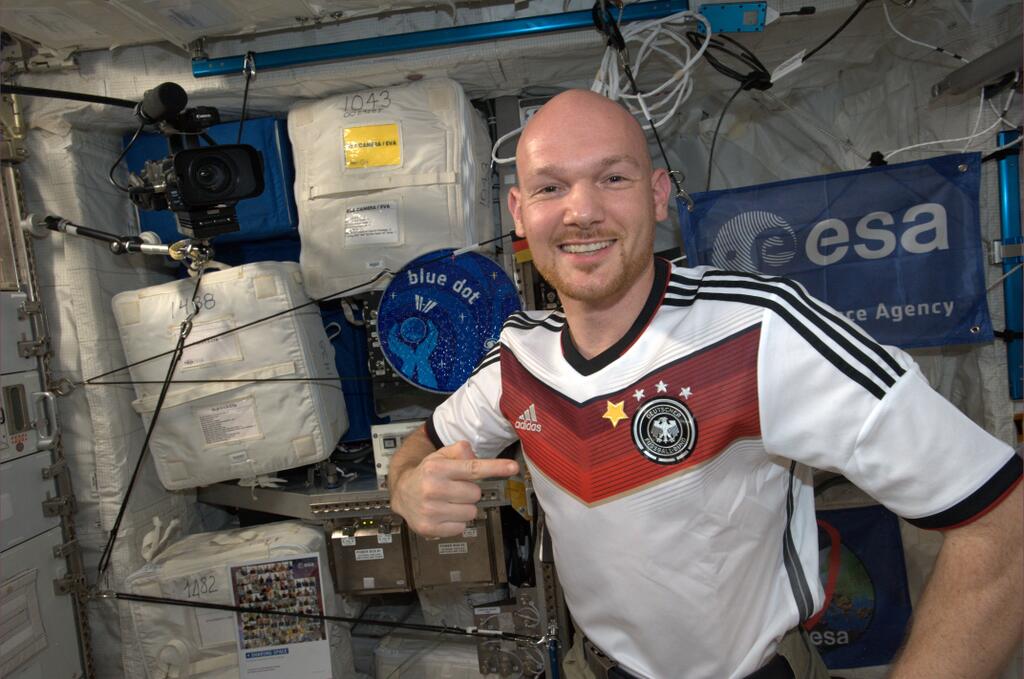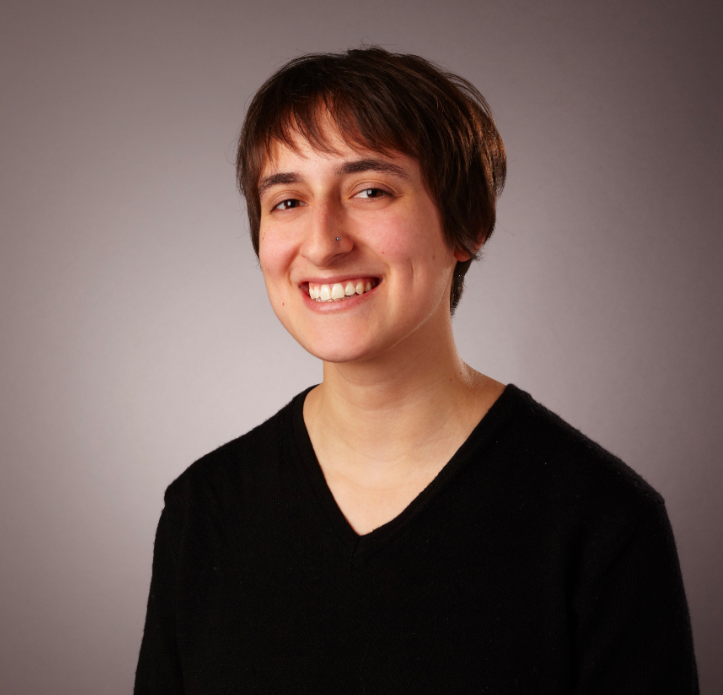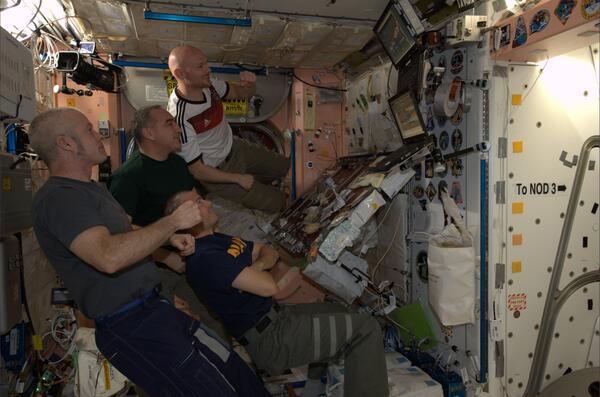Astronaut Celebrates Germany's World Cup Win from Space (Photos)

For a German astronaut living in space, his home country's epic World Cup victory this week was quite literally out-of-this-world.
European Space Agency astronaut Alexander Gerst and his crewmates watched the World Cup final from the International Space Station on Sunday (July 13) as Germany defeated Argentina to win the 2014 FIFA World Cup in Brazil. Gerst is currently the only German (and only European for that matter) living in space, and he wore his country's jersey during the match.
Germany beat Argentina, scoring the only goal of the game in overtime. To memorialize the big win, Gerst sewed a fourth star onto his German jersey to represent the four times Germany has won the World Cup. [See photos of Brazil's World Cup stadiums from space]
"Just like our @DFB_Team_EN I have fantastic support from my crew," Gerst (@Astro_Alex) wrote on Twitter with a photo of his two American crewmates, NASA's Steve Swanson and Reid Wiseman, holding him up. "Congrats from #ISS to the #WorldChamp. Great game!"
Gerst's fellow ESA astronaut Luca Parmitano — who recently finished a stint on the space station — sent his congratulations via Twitter when the German team eked out the win against Argentina.
"Congratulations Germany," Parmitano wrote on July 13. "What a great game :) I'm sure @Astro_Alex is floating happily with pride right now!"
While Gerst seemed to enjoy watching the World Cup from space, a piece of him still wanted to be on the ground, surrounded by his fellow German countrymen after the match.
Breaking space news, the latest updates on rocket launches, skywatching events and more!
"Tonight, as awesome as it is up here in space, I would love to spend just a few hours in a German city!" Gerst wrote in reply to Parmitano on Twitter.
Gerst also dedicated 11 orbits of the International Space Station to the German team to honor the win.
Gerst, Swanson and Wiseman have been following the World Cup since the beginning of the tournament. The three space station crewmembers even released a video showing off some of their microgravity soccer moves. In the video, the trio floats through the modules of the laboratory blocking shots, and heading a tiny soccer ball.
The Americans also made a friendly wager with Gerst when the U.S. team played Germany earlier in the tournament. Swanson and Wiseman had to shave their heads after Germany beat the United States 1 to 0 in June.
"Good to know I can work as a barber after flight!" Gerst wrote on Twitter after shaving his crewmembers' heads.
Swanson, Wiseman and Gerst are joined on the International Space Station by Russian cosmonauts Alexander Skvortsov, Oleg Artemyev and Maxim Suraev. Together, the six men make up the $100 billion station's Expedition 40 crew.
Follow Miriam Kramer @mirikramer and Google+. Follow us @Spacedotcom, Facebook and Google+. Original article on Space.com.

Miriam Kramer joined Space.com as a Staff Writer in December 2012. Since then, she has floated in weightlessness on a zero-gravity flight, felt the pull of 4-Gs in a trainer aircraft and watched rockets soar into space from Florida and Virginia. She also served as Space.com's lead space entertainment reporter, and enjoys all aspects of space news, astronomy and commercial spaceflight. Miriam has also presented space stories during live interviews with Fox News and other TV and radio outlets. She originally hails from Knoxville, Tennessee where she and her family would take trips to dark spots on the outskirts of town to watch meteor showers every year. She loves to travel and one day hopes to see the northern lights in person. Miriam is currently a space reporter with Axios, writing the Axios Space newsletter. You can follow Miriam on Twitter.

